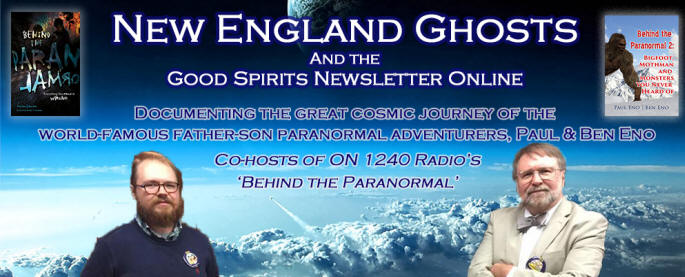Response to the Superskeptics
Amid the flurry of today's popular interest in things paranormal, there are lone voices and small groups who chuckle now and then, patiently pointing out that the paranormal is a pseudoscience and that every "paranormal" phenomenon has a "rational" or "natural" explanation.
These are the skeptics, or (since I believe that every paranormal investigator should be an open-minded skeptic), one might say, the superskeptics. They shake their heads in amusement or disgust as they hurl down thunderbolts from their armchairs upon us "true believers."
Rarely do skeptics actually go out and research the paranormal for themselves -- the first step in the scientific method they supposedly espouse. After all, one must intelligently decide what not to believe as well as what to believe.
A notable exception is the Committee for the Scientific Investigation of Claims of the Paranormal (CSICOP) and its various local affiliates. While CSICOP's official position is that they would love to find "real scientific evidence" of ghosts, ESP or UFOs, they never do. I respect them because they at least get out of the armchairs, go into the field and investigate "claims of the paranormal."
As a matter of fact, I belonged to CSICOP for a number of years in the 1970s and 1980s. I left them for several reasons.
I found their research dishonest. It was skewed against finding a paranormal explanation for anything. They were and are, in my opinion, one of the last holdouts of a discredited, 19th century philosophy of "scientific materialism" or "material realism" which basically says that everything in the universe comes down to matter, and that everything can be explained in terms of matter and its interaction with other matter.
Quantum physics blew this philosophy out of the water long ago.
In effect, these superskeptics try to measure the circumference of a beachball with a straight ruler. When they can't do it, they simply declare that the beachball doesn't exist.
You cannot explain a multi-dimensional universe with a three-dimensional scientific method.
Their skepticism extends to religion, too, and there is a strong current of atheism in the skeptical movement. I don't like this either. How intelligent can people be when they miss the whole point of the universe -- God? I find that most people who reject God either have axes to grind with the religions they grew up in, can't distinguish between being spiritual and being "religious," or simply have some goofy caricature of God that I don't believe in either.
The whole implication is that our ancient ancestors were a pack of nitwits because they accepted things like God, "life after death," spirits, angels or whatever as "givens," and pursued science and philosophy in the direction of what they didn't know: Things like the nature of the human mind and how we can get along with each other. Our ancestors knew that God and the paranormal not only exist but are intimately entwined with our own existence.
The fact is that we know almost nothing for sure about our world or ourselves. Every answer science brings us has 10 more questions trotting along behind it. The fact is that nobody, no matter how many degrees they may have after their names, has any right to a closed mind.
So, to the superskeptics, I say, "Get over it!" We're the philosophical freaks of human history. Our ancestors knew. We have chosen to forget, perhaps because it's very comforting to think that our little laws and assumptions put us, at least to some extent, in control of our world. To the superskeptics I say, "You're the ones with the problem. The burden of proof is on you."
As with any other belief system, skepticism and its brand of established science is a matter of faith. And all of us believe what we want to believe. It's human nature.
The true skeptic is open to ALL possibilities and, yes, ALL impossibilities. But until we achieve that kind of objectivity, we're stuck with that true principal of modern superskepticism: For the believer, no proof is required. For the unbeliever, no proof is sufficient.
Copyright 2005 by Paul F. Eno. All rights reserved.


